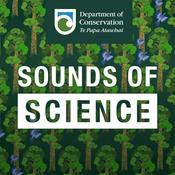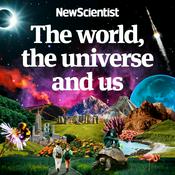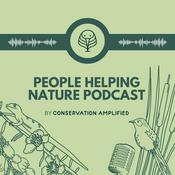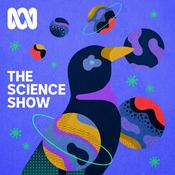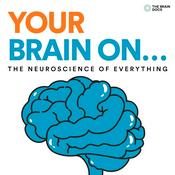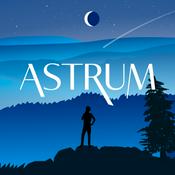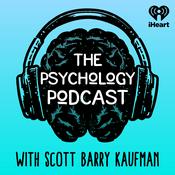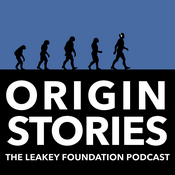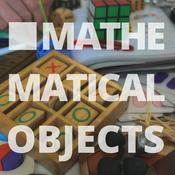Into the Impossible With Brian Keating
Big Bang Productions Inc.

Latest episode
586 episodes
- Please join my mailing list here 👉 https://briankeating.com/yt to win a meteorite 💥
What can we truly learn about the brain from a kidney cell? And what do aliens and alien-like limbs have to teach us? And if language is our escape velocity moment, what does that mean for the future of AI?
Nikolay Kukushkin is a scientist who believes that memory, intelligence, and even the roots of awareness may exist in places we never thought to look in. The timing of molecules in the learning of single cells, in the slow abstractions of evolution. He takes us through all of this in this wonderful new book, One Hand Clapping. Now let's go into the impossible.
KEY TAKEAWAYS
00:00 "Sea Slugs and Abstract Thought"
09:55 "Cell Intelligence and Sound"
10:47 Cellular Intelligence and Memory
19:22 "One Hand Clapping: Zen Riddle"
23:18 "Evolution of Inner Worlds"
31:05 "Einstein, Thought Experiments, and LLMs"
32:50 "Can LLMs Achieve Life?"
38:01 Alien Encounters: Unlikely Similarity
45:39 Unanticipated Findings on Cellular Memory
53:33 "Interdisciplinary Creativity and Slow Multitasking"
55:58 Evolution of the Gut
01:04:57 "Interconnection and Existential Koan"
01:08:19 "Reconstructing Nature's Patterns"
01:13:55 "Evolution of Brain's Role"
-
Additional resources:
Get My NEW Book: Focus Like a Nobel Prize Winner: https://www.amazon.com/dp/B0FN8DH6SX?ref_=pe_93986420_775043100
Join this channel to get access to perks like monthly Office Hours:
https://www.youtube.com/channel/UCmXH_moPhfkqCk6S3b9RWuw/join
📚 Get a copy of my books:
Think Like a Nobel Prize Winner, with life changing interviews with 9 Nobel Prizewinners: https://a.co/d/03ezQFu
My tell-all cosmic memoir Losing the Nobel Prize: http://amzn.to/2sa5UpA
The first-ever audiobook from Galileo: Dialogue Concerning the Two Chief World Systems: Ptolemaic and Copernican https://a.co/d/iZPi9Un
📺 Watch my most popular videos:📺
Neil Turok https://www.youtube.com/watch?v=Dt5cFLN65fI
Frank Wilczek https://youtu.be/3z8RqKMQHe0?sub_confirmation=1
Eric Weinstein vs. Stephen Wolfram https://www.youtube.com/watch?v=OI0AZ4Y4Ip4?sub_confirmation=1
Sir Roger Penrose: https://youtu.be/AMuqyAvX7Wo
Sabine Hossenfelder: https://youtu.be/g00ilS6tBvs
Avi Loeb: https://youtu.be/N9lUceHsLRw
Follow me to ask questions of my guests:
🏄♂️ Twitter: https://twitter.com/DrBrianKeating
🔔 Subscribe https://www.youtube.com/DrBrianKeating?sub_confirmation=1
📝 Join my mailing list; just click here http://briankeating.com/list
✍️ Detailed Blog posts here: https://briankeating.com/blog
🎙️ Listen on audio-only platforms: https://briankeating.com/podcast
#universe #podcast #briankeating #intotheimpossible #science #astronomy #cosmology #cosmicmicrowavebackground #intotheimpossible #briankeating #NikolayKukushkin
Learn more about your ad choices. Visit megaphone.fm/adchoices - Please join my mailing list here 👉 https://briankeating.com/yt to win a meteorite 💥
Code. It's the closest thing humans have ever invented to magic. Write symbols on a screen, and reality emerges. Money moves, doors unlock, planes land, diseases get diagnosed, and most of us have no idea how it actually works. Today's conversation is about why code feels magical and why that feeling is both powerful and also dangerous. In a moment, you'll hear why the real risk of code is artificial intelligence. It's scale. Tiny ideas multiplied across billions of lives.
My guest is Sam Arbesman, complexity scientist and author of The Magic of Code, a book about how software quietly became the most influential force shaping modern civilization. magic and sorcery. Often in our stories, they require a great deal of effort, like training. And so, like, you have to go to Hogwarts for seven years to really know magic and wizardry very well. The same kind of thing is true with code like so let's go cast some spells and learn the magic of code. Let's go.
KEY TAKEAWAYS
00:00 — Code feels magical because text can change reality.
00:25 — The real risk of code is scale, not intelligence.
01:55 — Software shapes modern civilization more than we realize.
02:40 — Coding is both technical and a humanistic liberal art.
03:05 — Code fulfills an ancient desire to control the world with language.
04:15 — Most “new” tech ideas have deep historical roots.
07:00 — Universal computation emerges from conditional logic and loops.
09:10 — Biological computation works very differently from digital computers.
10:30 — Biology expands the definition of computation itself.
12:00 — Software is powerful but inherently temporary.
16:00 — Code resembles magic because it requires long training to master.
17:45 — Software creation is becoming accessible to everyone.
19:40 — Not all software must scale; personal tools matter.
24:10 — Computers are tools, not ends in themselves.
26:35 — Bugs are inevitable and often educational.
56:00 -- The Half Life Of Facts
-
Additional resources:
Get Sam’s Book “The Magic of Code”: https://bit.ly/4qLBnXX
Get My NEW Book: Focus Like a Nobel Prize Winner: https://www.amazon.com/dp/B0FN8DH6SX?ref_=pe_93986420_775043100
-
Join this channel to get access to perks like monthly Office Hours:
https://www.youtube.com/channel/UCmXH_moPhfkqCk6S3b9RWuw/join
📚 Get a copy of my books:
Think Like a Nobel Prize Winner, with life changing interviews with 9 Nobel Prizewinners: https://a.co/d/03ezQFu
My tell-all cosmic memoir Losing the Nobel Prize: http://amzn.to/2sa5UpA
The first-ever audiobook from Galileo: Dialogue Concerning the Two Chief World Systems: Ptolemaic and Copernican https://a.co/d/iZPi9Un
📺 Watch my most popular videos:📺
Neil Turok https://www.youtube.com/watch?v=Dt5cFLN65fI
Frank Wilczek https://youtu.be/3z8RqKMQHe0?sub_confirmation=1
Eric Weinstein vs. Stephen Wolfram https://www.youtube.com/watch?v=OI0AZ4Y4Ip4?sub_confirmation=1
Sir Roger Penrose: https://youtu.be/AMuqyAvX7Wo
Sabine Hossenfelder: https://youtu.be/g00ilS6tBvs
Avi Loeb: https://youtu.be/N9lUceHsLRw
Follow me to ask questions of my guests:
🏄♂️ Twitter: https://twitter.com/DrBrianKeating
🔔 Subscribe https://www.youtube.com/DrBrianKeating?sub_confirmation=1
📝 Join my mailing list; just click here http://briankeating.com/list
✍️ Detailed Blog posts here: https://briankeating.com/blog
🎙️ Listen on audio-only platforms: https://briankeating.com/podcast
#universe #podcast #briankeating #intotheimpossible #science #astronomy #cosmology #cosmicmicrowavebackground #intotheimpossible #briankeating #SamArbesman
Learn more about your ad choices. Visit megaphone.fm/adchoices - WANTED: Developers and STEM experts! Get paid to create benchmarks and improve AI models. Sign up for Alignerr using our link: https://alignerr.com/?referral-source=briankeating
One of the most powerful AI systems we’ve ever built is succeeding for reasons we still don’t understand. And worse, they may succeed for reasons that might lock us into the wrong future for humanity.
Today’s guest is Anil Ananthaswamy, an award-winning science writer and one of the clearest thinkers on the mathematical foundations of machine learning.
In this conversation, we’re not just talking about new demos, incremental improvements, or updates on new models being released. We’re asking even harder questions: Why does the mathematics of machine learning work at all?
How do these models succeed when they suffer from problems like overparameterization and lack of training data?
And are large language models revealing deep structure, or are they just producing very convincing illusions and causing us to face an increasingly AI-slop-driven future?
KEY TAKEAWAYS
00:00 — Book explores why ML works through math
02:47 — Perceptron proof shows simple math guarantees learning
05:11 — Early AI failed due to single-layer limits
07:12 — Nonlinear limits caused the first AI winter
09:04 — Backpropagation revived neural networks
10:59 — GPUs + big data enabled deep learning
15:25 — AI success risks technological lock-in
17:30 — LLMs lack human-like learning and embodiment
22:57 — High-dimensional spaces power ML behavior
27:36 — Data saturation may slow future gains
31:11 — Continual learning is still missing in AI
33:46 — Neuromorphic chips promise energy efficiency
41:49 — Overparameterized models still generalize well
45:05 — SGD succeeds via randomness in complex landscapes
48:27 — Perceptrons remain the core of modern neural net
-
Additional resources:
Anil's NEW Book "Why Machines Learn: The Elegant Math Behind Modern AI": https://www.amazon.com/Why-Machines-Learn-Elegant-Behind/dp/0593185749
Get My NEW Book: Focus Like a Nobel Prize Winner: https://www.amazon.com/dp/B0FN8DH6SX?ref_=pe_93986420_775043100
Please join my mailing list here 👉 https://briankeating.com/yt to win a meteorite 💥
-
Join this channel to get access to perks like monthly Office Hours:
https://www.youtube.com/channel/UCmXH_moPhfkqCk6S3b9RWuw/join
📚 Get a copy of my books:
Think Like a Nobel Prize Winner, with life changing interviews with 9 Nobel Prizewinners: https://a.co/d/03ezQFu
My tell-all cosmic memoir Losing the Nobel Prize: http://amzn.to/2sa5UpA
The first-ever audiobook from Galileo: Dialogue Concerning the Two Chief World Systems: Ptolemaic and Copernican https://a.co/d/iZPi9Un
📺 Watch my most popular videos:📺
Neil Turok https://www.youtube.com/watch?v=Dt5cFLN65fI
Frank Wilczek https://youtu.be/3z8RqKMQHe0?sub_confirmation=1
Eric Weinstein vs. Stephen Wolfram https://www.youtube.com/watch?v=OI0AZ4Y4Ip4?sub_confirmation=1
Sir Roger Penrose: https://youtu.be/AMuqyAvX7Wo
Sabine Hossenfelder: https://youtu.be/g00ilS6tBvs
Avi Loeb: https://youtu.be/N9lUceHsLRw
Follow me to ask questions of my guests:
🏄♂️ Twitter: https://twitter.com/DrBrianKeating
🔔 Subscribe https://www.youtube.com/DrBrianKeating?sub_confirmation=1
📝 Join my mailing list; just click here http://briankeating.com/list
✍️ Detailed Blog posts here: https://briankeating.com/blog
🎙️ Listen on audio-only platforms: https://briankeating.com/podcast
#universe #podcast #briankeating #intotheimpossible #science #astronomy #cosmology #cosmicmicrowavebackground #intotheimpossible #briankeating #AnilAnanthaswamy
Learn more about your ad choices. Visit megaphone.fm/adchoices - Get My NEW Book: Focus Like a Nobel Prize Winner: https://www.amazon.com/dp/B0FN8DH6SX
Andrew Jaffe Book: The Random Universe: https://www.amazon.com/Random-Universe-Models-Probability-Cosmos/dp/0300250509
Is the universe intrinsically random? In this conversation, we dive deep into why the universe may be fundamentally, intrinsically random. Whether inflation on life support, the truth behind the Hubble tension, and whether cosmology is approaching the event horizon, limits beyond which humans can never know. Today we're joined by one of the architects of modern cosmological inference, Professor Andrew Jaffee, author of a new book called The Random Universe that argues that every observation in science is shaped by the models we bring to it, biases and all.
KEY TAKEAWAYS
00:00–01:13 — Science and life rely on building models.
01:13–03:35 — Models of people and reality are often wrong and revised.
04:04–06:01 — Observation depends on prior theories.
06:01–07:32 — Models can’t be escaped, only improved.
07:32–08:57 — No single scientific method exists.
08:57–11:25 — Science uses induction, not pure proof.
11:25–13:22 — Induction isn’t certain, only probabilistic.
13:22–15:36 — Induction works because nature is regular.
17:44–19:08 — Big Bang emerges from well-tested models.
19:08–21:15 — Current cosmology is stressed, not broken.
29:19–30:36 — Probability gives meaning to models.
39:45–41:11 — Randomness often reflects limited knowledge.
43:46–45:00 — Quantum physics is fundamentally probabilistic.
49:09–50:04 — Inflation awaits decisive observational tests.
-
Additional resources:
Get My NEW Book: Focus Like a Nobel Prize Winner: https://www.amazon.com/dp/B0FN8DH6SX?ref_=pe_93986420_775043100
Please join my mailing list here 👉 https://briankeating.com/yt to win a meteorite 💥
-
Join this channel to get access to perks like monthly Office Hours:
https://www.youtube.com/channel/UCmXH_moPhfkqCk6S3b9RWuw/join
📚 Get a copy of my books:
Think Like a Nobel Prize Winner, with life changing interviews with 9 Nobel Prizewinners: https://a.co/d/03ezQFu
My tell-all cosmic memoir Losing the Nobel Prize: http://amzn.to/2sa5UpA
The first-ever audiobook from Galileo: Dialogue Concerning the Two Chief World Systems: Ptolemaic and Copernican https://a.co/d/iZPi9Un
📺 Watch my most popular videos:📺
Neil Turok https://www.youtube.com/watch?v=Dt5cFLN65fI
Frank Wilczek https://youtu.be/3z8RqKMQHe0?sub_confirmation=1
Eric Weinstein vs. Stephen Wolfram https://www.youtube.com/watch?v=OI0AZ4Y4Ip4?sub_confirmation=1
Sir Roger Penrose: https://youtu.be/AMuqyAvX7Wo
Sabine Hossenfelder: https://youtu.be/g00ilS6tBvs
Avi Loeb: https://youtu.be/N9lUceHsLRw
Follow me to ask questions of my guests:
🏄♂️ Twitter: https://twitter.com/DrBrianKeating
🔔 Subscribe https://www.youtube.com/DrBrianKeating?sub_confirmation=1
📝 Join my mailing list; just click here http://briankeating.com/list
✍️ Detailed Blog posts here: https://briankeating.com/blog
🎙️ Listen on audio-only platforms: https://briankeating.com/podcast
#universe #podcast #briankeating #intotheimpossible #science #astronomy #cosmology #cosmicmicrowavebackground #intotheimpossible #briankeating #AndrewJaffe
Learn more about your ad choices. Visit megaphone.fm/adchoices Max Tegmark vs. Eric Weinstein: AI, Aliens, Theories, & New Year’s Resolutions! (Repost from 2021)
01/1/2026 | 2h 31 mins.Win a $100 Amazon Gift Card!
Help me help you get great guests on the Into the Impossible podcast and spread the message throughout the universe.
Fill out this listener survey: https://forms.gle/EUKzyE2ZqXDYJ2F47
Please join my mailing list here 👉 https://briankeating.com/yt to win a meteorite 💥
---
Enjoy this classic episode from the vault: Max Tegmark & Eric Weinstein, New Years Eve 2020!
Brian Keating brings together two thought leaders at the edge of physics and philosophy: Max Tegmark, physicist, cosmologist, and pioneer at MIT, and Eric Weinstein, mathematician, economist, and creator of Geometric Unity.
Timestamps:
00:00 "Ambitions in AI, Physics, News"
16:58 "Emergent Reality from Proto-Spacetime"
22:50 "Rethinking Unification in Physics"
36:09 "Value of Disagreeable Individualism"
45:32 "Optimism for Academia Careers"
01:04:08 "Dangers of Oversimplifying Physics"
01:07:34 "On Success, Science, and Wonder"
01:18:47 "Funding and Advancing Physics Research"
01:30:28 "Perspective on Science and Society"
01:43:13 "Three Types of Scientific Experiments"
01:52:05 "Collaboration and Discovery in Science"
02:02:20 "The Messiness of Scientific Truth"
02:13:08 "Simulation, AI, and Ethics"
02:20:55 "Limits of Technology in Cosmos"
---
Join this channel to get access to perks like monthly Office Hours:
https://www.youtube.com/channel/UCmXH_moPhfkqCk6S3b9RWuw/join
📚 Get my books:
Think Like a Nobel Prize Winner, with productivity tips from 9 Nobel Prize winners: https://a.co/d/03ezQFu
Focus Like a Nobel Prize Winner, with life-changing interviews with 9 Nobel Prizewinners: https://a.co/d/hi50U9U
My tell-all cosmic memoir Losing the Nobel Prize: http://amzn.to/2sa5UpA
The first-ever audiobook from Galileo: Dialogue Concerning the Two Chief World Systems: Ptolemaic and Copernican https://a.co/d/iZPi9Un
Follow me to ask questions of my guests:
🏄♂️ Twitter: https://twitter.com/DrBrianKeating
🔔 Subscribe https://www.youtube.com/DrBrianKeating?sub_confirmation=1
📝 Join my mailing list; just click here http://briankeating.com/list
✍️ Detailed Blog posts here: https://briankeating.com/blog
🎙️ Listen on audio-only platforms: https://briankeating.com/podcast
#universe #podcast #briankeating #intotheimpossible #science #astronomy #cosmology #cosmicmicrowavebackground #intotheimpossible #briankeating
Learn more about your ad choices. Visit megaphone.fm/adchoices
More Science podcasts
Trending Science podcasts
About Into the Impossible With Brian Keating
Think like a physicist. Wonder like a human. Into the Impossible is where Cosmic Conversations happen — uniting Nobel Prize winners, iconoclasts, authors, and technologists to explore reality’s deepest questions. From AI to aliens, from biophysics to the brain, from the cosmos to the multiverse, Brian Keating, Chancellor’s Distinguished Professor of Physics at UC San Diego covers it all.
If you’ve ever asked What’s out there? or What’s next?, this is where curiosity meets clarity.
Learn to think like this. 🎙 Full episodes, notes & more: briankeating.com/podcast
Podcast websiteListen to Into the Impossible With Brian Keating, Making Sense with Sam Harris and many other podcasts from around the world with the radio.net app

Get the free radio.net app
- Stations and podcasts to bookmark
- Stream via Wi-Fi or Bluetooth
- Supports Carplay & Android Auto
- Many other app features
Get the free radio.net app
- Stations and podcasts to bookmark
- Stream via Wi-Fi or Bluetooth
- Supports Carplay & Android Auto
- Many other app features


Into the Impossible With Brian Keating
Scan code,
download the app,
start listening.
download the app,
start listening.













